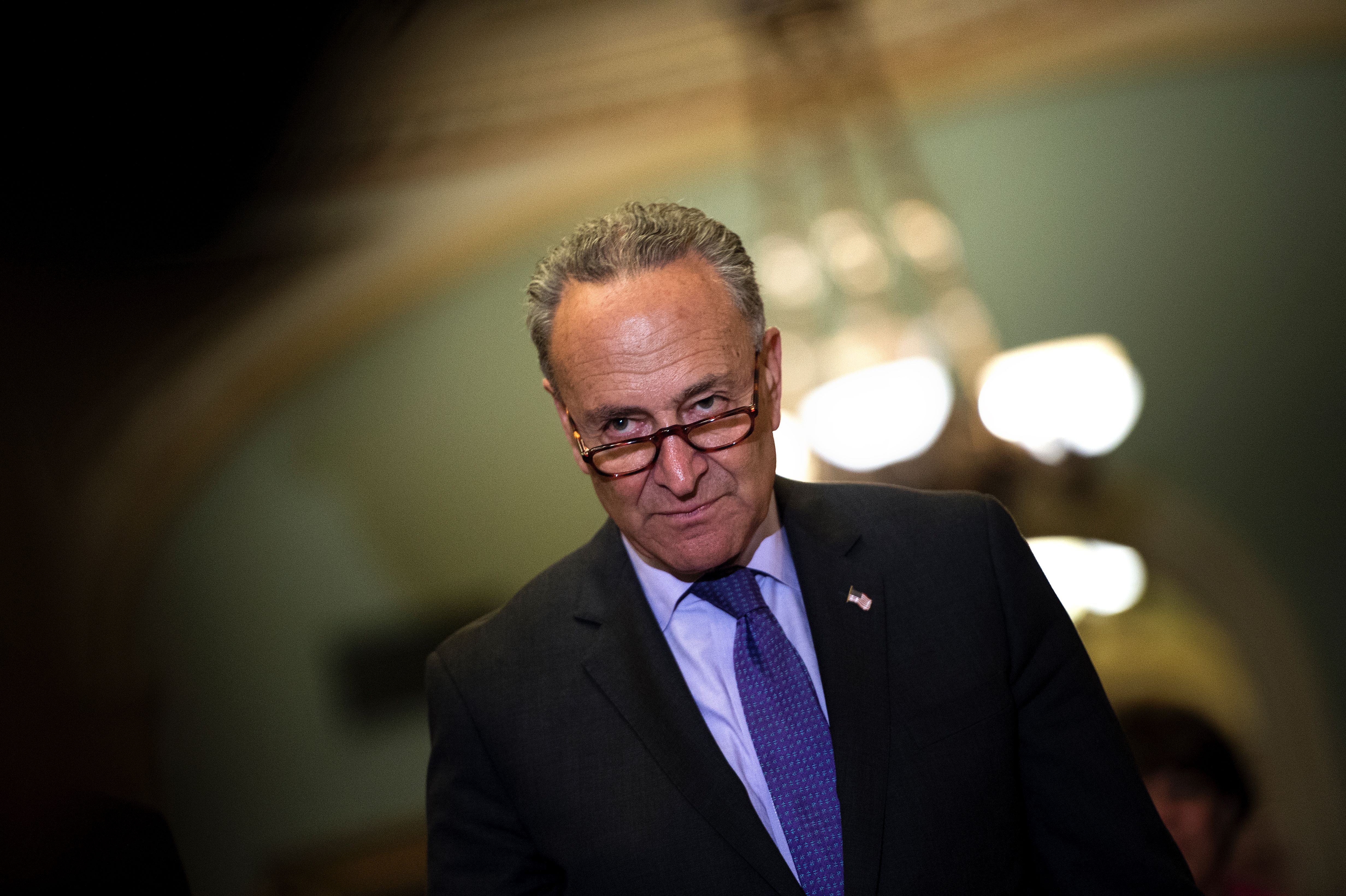Democrats are being staggeringly reckless with Obama's greatest diplomatic achievement
Why are Democrats so cavalier about Obama's Iran deal?


Senate Democrats voted overwhelmingly last Thursday for new sanctions on Russia, Iran, and North Korea, days after their House counterparts had also done so. The bill now goes to President Trump — though the margins were so gigantic that any veto could be quickly overridden.
The case for sanctioning Russia for meddling in the 2016 election is a strong one. But there is no comprehensible reason for sanctioning Iran. Democrats are putting the greatest diplomatic legacy of President Obama — the nuclear bargain with Iran — at extreme risk for no reason whatsoever.
Let's review some background. The United States is now engaged in its longest period of continuous warfare in its history. With some minor exceptions, this fighting has been a strategic disaster from start to finish. No matter the level of aggressiveness, each military intervention has failed in its stated objectives. The invasion of Iraq was a bloody catastrophe, wasting trillions of dollars, killing hundreds of thousands, leading directly to the creation of ISIS, and leaving a corrupt, barely functioning state in thrall to Iran — indeed, dependent on that neighbor for its very existence.
Subscribe to The Week
Escape your echo chamber. Get the facts behind the news, plus analysis from multiple perspectives.

Sign up for The Week's Free Newsletters
From our morning news briefing to a weekly Good News Newsletter, get the best of The Week delivered directly to your inbox.
From our morning news briefing to a weekly Good News Newsletter, get the best of The Week delivered directly to your inbox.
The intervention in Libya helped create a chaotic, murderous hellscape. Various interventions in the Syrian civil war mostly just prolonged the conflict. American enabling of the Saudi intervention in Yemen (not to mention years of drone assassinations there) is creating famine and the worst cholera epidemic in history.
The invasion of Afghanistan bears careful attention, as it's the longest-running war and also the last formal occupation. Eight years ago President Obama announced he was going to try President Bush's surge strategy in Afghanistan. By the military's own accounting, it was a dismal failure — indeed, the Taliban is stronger today than they were when Obama first took office. Recently the military has been ramping up deployments there, and President Trump recently announced that pillaging Afghanistan's mineral resources would be a good reason to stay. It won't work.
From all this we can draw two conclusions: First, the modern American state is extremely eager to get into wars, and second, these wars have deeply harmed any possible conception of the American national interest. Trump's possible foray into British Empire-style looting may be odious in the extreme, but any possible stolen mineral wealth will not come remotely close to paying the tremendous bill for the occupation.
This brings me back to Iran. Before the invasion of Iraq turned out to be a blood-soaked nightmare, neoconservatives and belligerent liberals were eagerly hoping Iran could be next. Many of them are stomping their feet to this day that Obama's nuclear deal with Iran put that next war of aggression seemingly out of reach.
It's clear that this desire is one major factor behind the drive for more sanctions. The Iranians did recently launch a missile into space (notably, after the House voted for sanctions), prompting new minor sanctions from the Trump administration. However, such launches are not forbidden under the nuclear deal. The International Atomic Energy Agency has consistently certified that Iran is following through with its side of the bargain; it has also been strongly confirmed by the Iranian public, which overwhelmingly re-elected the moderate President Hassan Rouhani who helped guide it to fruition.
Only Sens. Bernie Sanders (I-Vt.) and Rand Paul (R-Ky.) voted against sanctions. Sanders explicitly referenced the danger to the Iran deal, particularly given that President Trump has to re-certify Iran's compliance every 90 days:
Barely anyone even addressed this argument, let alone gave it the close attention it deserves. Neither did Democrats much care that European allies who are also party to the deal are furious.
At any rate, not only could more sanctions blow up the deal, as noted above, they could easily slide into open conflict. War with Iran — a much larger and much more formidable opponent than Iraq — could be a disaster many times worse than any of our recent wars. And yet, many in the foreign policy establishment have never stopped pushing for it. Simply forestalling disaster counts as a major victory in these degenerate times.
It is staggering how cavalierly Democrats are behaving towards President Obama's greatest diplomatic achievement.
A free daily email with the biggest news stories of the day – and the best features from TheWeek.com
Ryan Cooper is a national correspondent at TheWeek.com. His work has appeared in the Washington Monthly, The New Republic, and the Washington Post.
-
 Zohran Mamdani: the young progressive likely to be New York City's next mayor
Zohran Mamdani: the young progressive likely to be New York City's next mayorIn The Spotlight The policies and experience that led to his meteoric rise
-
 The best film reboots of all time
The best film reboots of all timeThe Week Recommends Creativity and imagination are often required to breathe fresh life into old material
-
 'More must be done'
'More must be done'Instant Opinion Opinion, comment and editorials of the day
-
 The last words and final moments of 40 presidents
The last words and final moments of 40 presidentsThe Explainer Some are eloquent quotes worthy of the holders of the highest office in the nation, and others... aren't
-
 The JFK files: the truth at last?
The JFK files: the truth at last?In The Spotlight More than 64,000 previously classified documents relating the 1963 assassination of John F. Kennedy have been released by the Trump administration
-
 'Seriously, not literally': how should the world take Donald Trump?
'Seriously, not literally': how should the world take Donald Trump?Today's big question White House rhetoric and reality look likely to become increasingly blurred
-
 Will Trump's 'madman' strategy pay off?
Will Trump's 'madman' strategy pay off?Today's Big Question Incoming US president likes to seem unpredictable but, this time round, world leaders could be wise to his playbook
-
 Democrats vs. Republicans: who are the billionaires backing?
Democrats vs. Republicans: who are the billionaires backing?The Explainer Younger tech titans join 'boys' club throwing money and support' behind President Trump, while older plutocrats quietly rebuke new administration
-
 US election: where things stand with one week to go
US election: where things stand with one week to goThe Explainer Harris' lead in the polls has been narrowing in Trump's favour, but her campaign remains 'cautiously optimistic'
-
 Is Trump okay?
Is Trump okay?Today's Big Question Former president's mental fitness and alleged cognitive decline firmly back in the spotlight after 'bizarre' town hall event
-
 The life and times of Kamala Harris
The life and times of Kamala HarrisThe Explainer The vice-president is narrowly leading the race to become the next US president. How did she get to where she is now?
